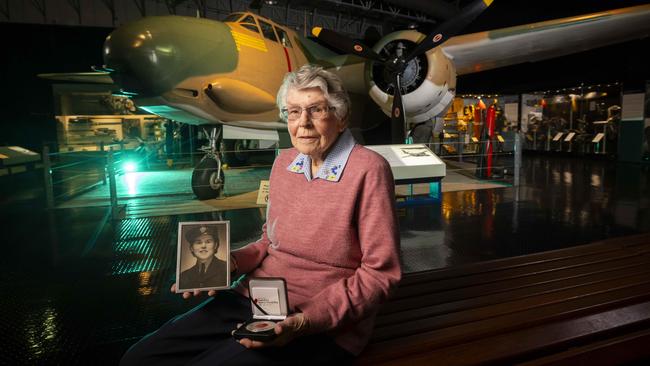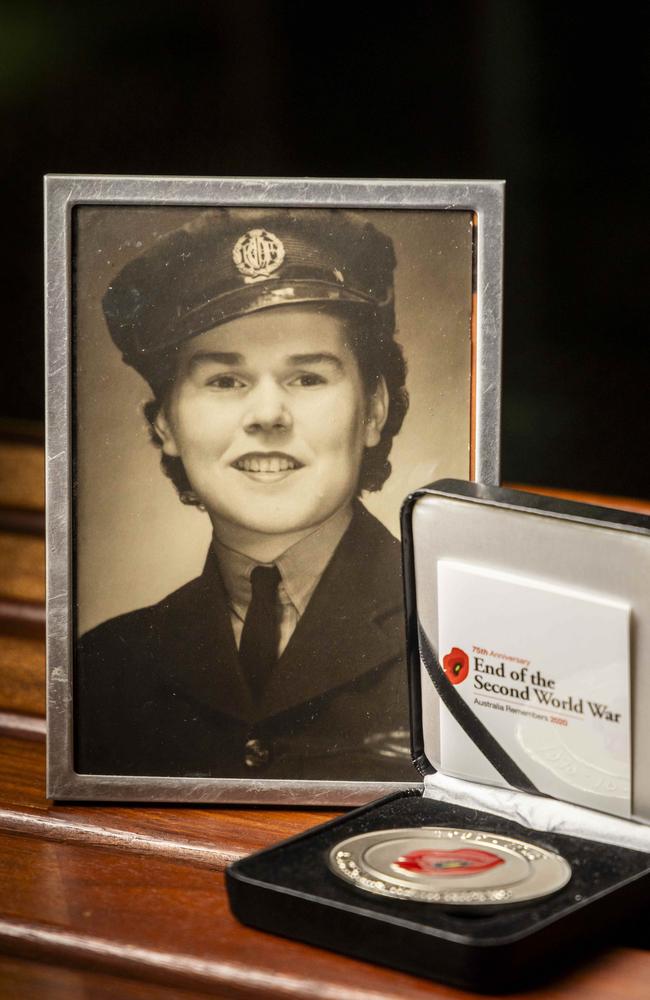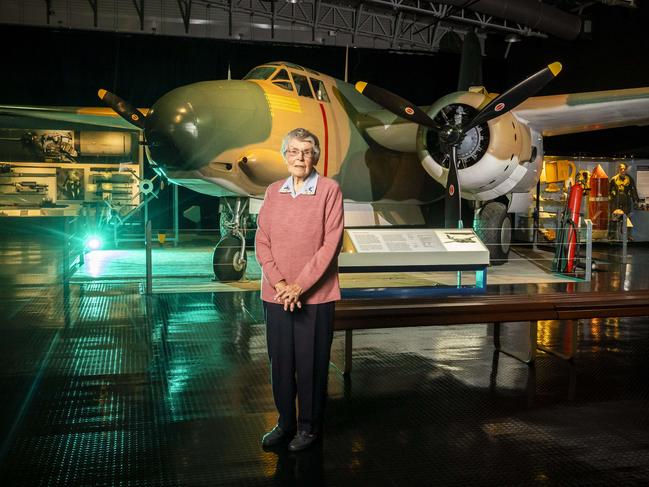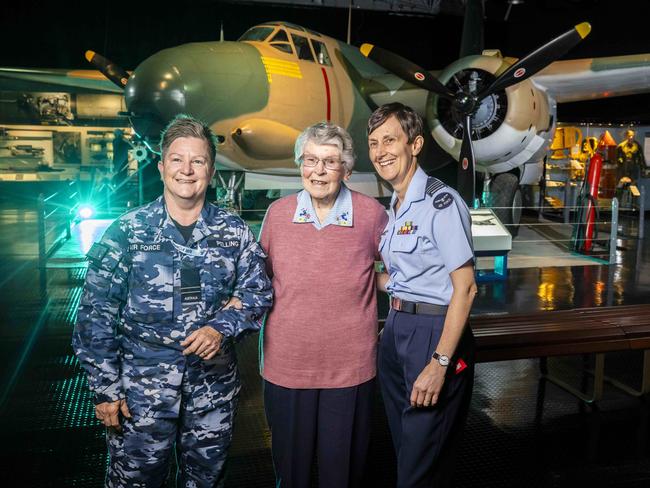‘Put women on the map’: Joy Daymon became one of Australia’s first female flight mechanics
Her parents said they wouldn’t sign her military papers, but a teenage Joy Daymon was determined to serve her country. Her decision to join the Royal Australian Air Force as a flight mechanic changed her life and broke new ground for women.

News
Don't miss out on the headlines from News. Followed categories will be added to My News.
Joy Daymon was only a teenager when that announcement came over the radio one Sunday afternoon.
She was halfway through a roast lunch at home with her parents and two sisters in Western Australia when her ears pricked up and her heart skipped a beat.
As if she didn’t hear it the first time or thought she had imagined it, the radio host repeated the news that would change her life forever — the Royal Australian Air Force was accepting women for service.
“My dad looked at us and pointed his finger and said ‘not one of you are going’,” Ms Daymon, 98, told the Herald Sun.
“Mum said she wouldn’t sign any of my papers either”.
But that would not stop her.
Nor did the fact that it was the height of the Second World War and her home state had been attacked by Japanese bombers, with more than 40 people killed in Broome including several children by the time her acceptance letter arrived in October 1943.
She was determined to serve her country and serve her country she did.

Less than a year later, the then 18-year-old retail worker became an integral cog in the newly formed Women’s Auxiliary Australian Air Force as a flight mechanic – an achievement she said she will be “forever proud of”.
“It means a lot to me,” she said.
“I’ve even got people saying to me now that it showed Australia that us women proved we could do the same as what the men could and that we really put women on the map.”


Among the aircraft Ms Daymon worked on was the Avro Anson – a British twin engine aircraft used for reconnaissance missions and training exercises – which she also had to board during test flights to avoid any pilot espionage.
But the day Ms Daymon said she has “never forgotten” was when news rang that victory had been declared for the Allied nations and thus the end of the Second World War.
Ms Daymon was stationed on a base in Bairnsdale at the time.
“I can tell you there was no work done that day,” she said.
“The trucks went round the place using toilet rolls as streamers and the beer was flowing freely. It was a big celebration.
“It was a big relief for everyone, we had all been looking forward to that day for a long, long time.
“It had been very tense (during the war), they discovered at one stage that three Japanese submarines were heading for Sydney.”
Nearly eight decades after she was discharged in 1946, Ms Daymon continues to attend
military events across the country.
This year she attended the Mount Macedon Dawn Service where she read out the Ode to the Fallen and had her story shared by local school captains.




